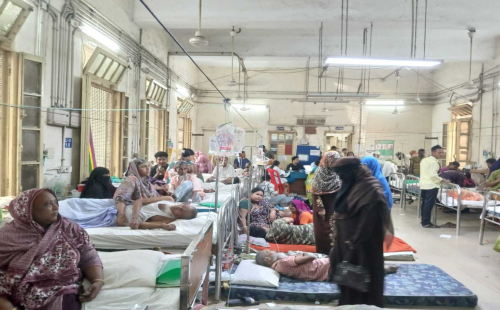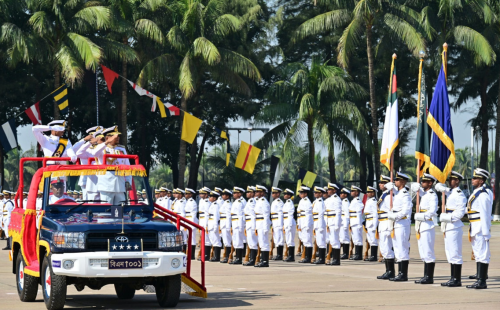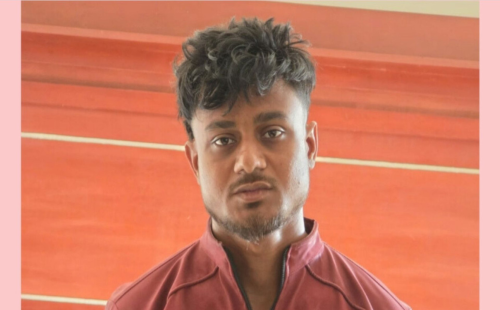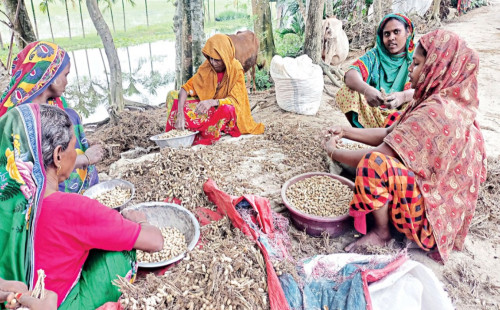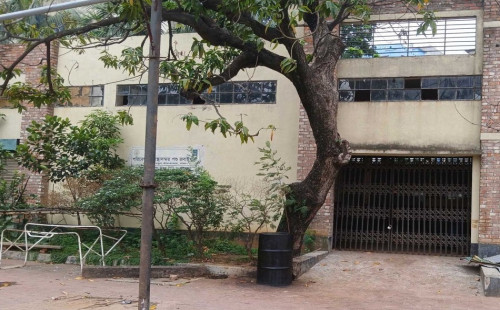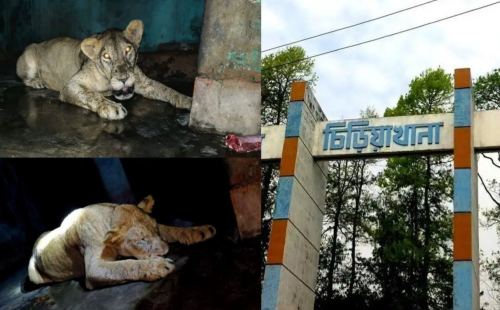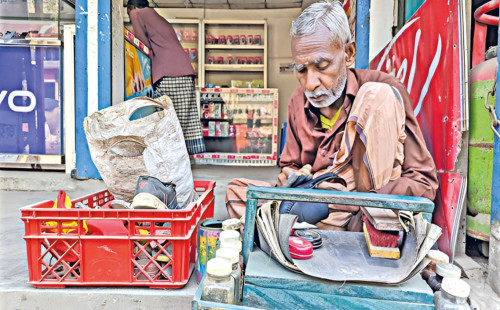Regional growth key to easing Dhaka’s burden
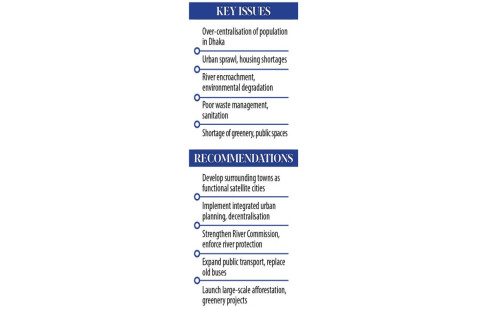
Climate change, unplanned urbanisation, river encroachment,
pollution, excessive use of polythene, and severe traffic congestion are making
life increasingly difficult in Dhaka, said speakers at a discussion yesterday.
They also stressed that nationwide sustainable development
is essential to decentralise the capital and ensure its liveability.
The remarks were made at a focus group discussion titled
"Decentralisation & Environmental Welfare of the Capital: Towards a
Sustainable Dhaka", organised by Dhaka Chamber of Commerce & Industry
(DCCI) at its auditorium in the capital.
Speakers emphasised that only coordinated efforts between
the government, the private sector, and citizens can reduce pressure on Dhaka.
In his welcome remarks, DCCI President Taskeen Ahmed said,
"Dhaka contributes nearly 45 percent to the national GDP, yet according to
a 2022 Buet study, traffic congestion alone causes an economic loss of Tk 140
crore worth of working hours daily."
He urged transforming surrounding areas into functional
secondary cities for administrative and commercial activities.
Environment Adviser Syeda Rizwana Hasan noted that while
population growth in Dhaka is difficult to control, decentralisation must go
hand in hand with developing adjacent towns such as Savar, Narayanganj, and
Gazipur into liveable cities.
"Despite the large number of housing projects in
Dhaka, thousands of people remain homeless. Due to river erosion and other
effects of climate change, many are forced to migrate to the capital in search
of survival," she said.
She also stressed curbing polythene use, improving
industrial compliance, and strengthening environmental safety measures, such as
ensuring functional Central Effluent Treatment Plants (CETPs) and replacing old
buses.
"Without concerted efforts, we cannot improve Dhaka's
air quality," she warned.
Md Reazul Islam, chairman of Rajuk, said building a
sustainable Dhaka is impossible without sustainable national development.
He called for an integrated development authority to
oversee all urban development projects under a single framework for
accountability.
In his keynote presentation, architect Iqbal Habib, founder
partner of Vitti Sthapati Brindo Ltd, highlighted that 32 percent of
Bangladesh's urban population lives in Dhaka, but the city faces serious
challenges including lack of greenery, heat stress, flooding, and waste
mismanagement.
He recommended empowering the River Commission, ensuring
balanced urbanisation, and completing proposed ring roads around Dhaka as key
decentralisation measures.
He also noted that over-centralisation has contributed to
problems such as flooding, waterlogging, poor waste management, urban
pollution, and public health crises.
He further stressed the need for improved rural livelihoods
to promote Dhaka's decentralisation.
Adil Mohammed Khan, president of Bangladesh Institute of
Planners, called for extending Dhaka's development initiatives beyond the
metropolitan area.
Md Shamsul Hoque, professor of civil engineering at Buet,
criticised excessive focus on mega projects rather than effective public
transport solutions.
Speakers also emphasised the urgent need for structural
reforms, planned satellite cities, improved public transport, and rural
development to reduce the influx of people to the capital.
Md Ashraful Islam, chief town planner of Rajuk; Md Zahirul
Islam, director of the Department of Environment (DoE); Liakat Ali Bhuiyan,
senior vice president of the Real Estate and Housing Association of Bangladesh
(REHAB); M Abu Horaira, former vice president of DCCI; Dilbahar Ahmed,
geographer and urban planner at DNCC; and Kazi Golam Nasir, former chief
architect of the Department of Architecture at the Ministry of Housing and
Public Affairs, also spoke at the event.

